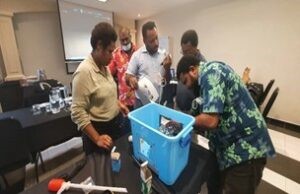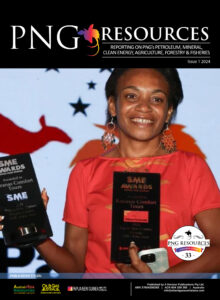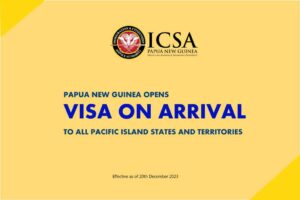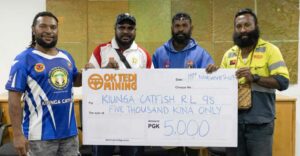Launching of renewable energy and green economy trainings for remote rural communities in Papua New Guinea

The Global Green Growth Institute (GGGI) in partnership with the Climate Change and Development Authority (CCDA) and the Central Provincial Administration (CPA), will be conducting community level trainings in five selected rural communities of Central Province under its project titled “Capacity Building to Strengthen Sustainable Implementation of Renewable Energy Technologies for Rural Energy Access”. The initiative is part of a 4-year regional project currently under implementation in the Melanesian countries: Fiji, Vanuatu, Solomon Islands and Papua New Guinea. The project is funded by the Republic of Korea through the Korea International Corporation Agency (KOICA) in partnership with GGGI and the Pacific Islands Development Forum (PIDF).
The project’s main objective is to strengthen informed and inclusive decision-making by resource owners and local government officials for integration of Green Economy (GE) and Renewable Energy (RE) into Local Level Planning and to Strengthen Implementation of Renewable energy (RE) infrastructure for Rural Electrification, taking into account gender and inclusive development.
GGGI, having worked closely with local partners, has developed 10 training modules, complete with detailed trainer guides (TGs) as well as simplified local language (Tok-Pidgin) translated Learner Workbooks (LWs) on topics such as: Green Economy General Principles, Green Business Basics, Energy Efficiency Basics, Inclusive Development, Renewable Energy General Principles, Renewable Energy Project Financial Management, Solar in the Community, Solar Operations and Maintenance basics, Pico- Hydro in the Community and Pico- Hydro Operations and Maintenance basics.
Eight experienced national trainers have undergone 2 weeks of training of trainers (ToT) workshop, out of which, four (4) have been selected and will soon be mobilizing to the selected remote rural communities in Central Province to deliver the training.
The project aims to train a total of 3000 people in all 4 countries, that is 750 people per country, while also achieving 40% women and 20% vulnerable groups participation.
The project was piloted in the Rigo district and the upcoming main trainings will cover five villages in that district. The training starts off in Keapara Village in early August, before moving to Alukuni, Karawa, Imuagoro, and Kalo villages completing training in all sites by the second week of September 2022. All the training modules will also be launched later this year and made publicly available on the online knowledge management platform developed under this project.





